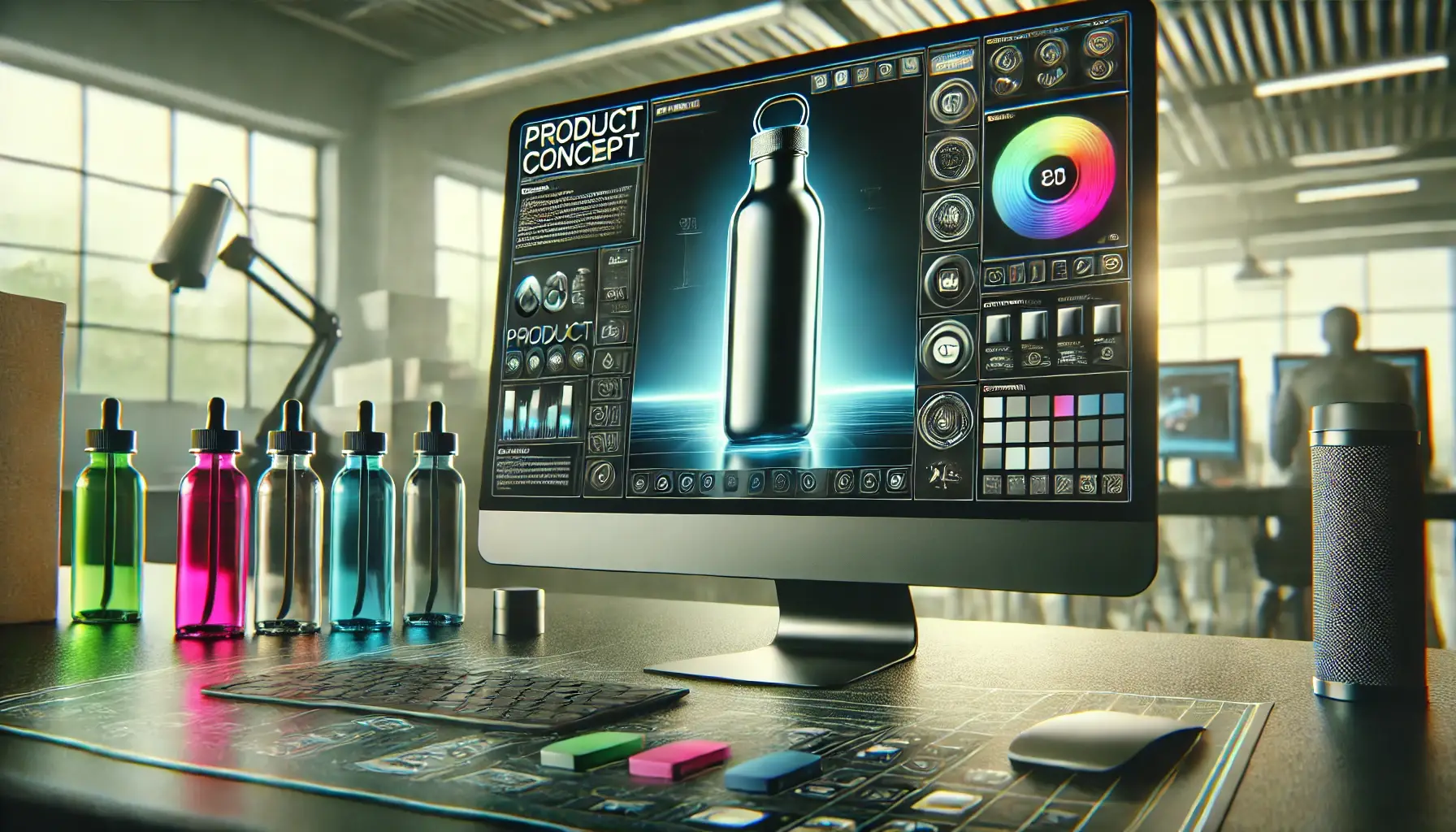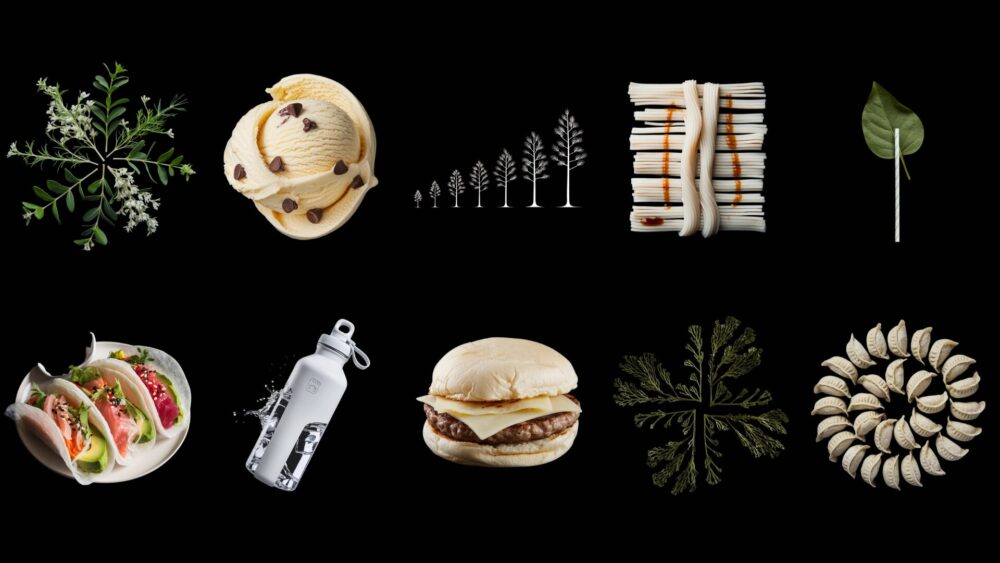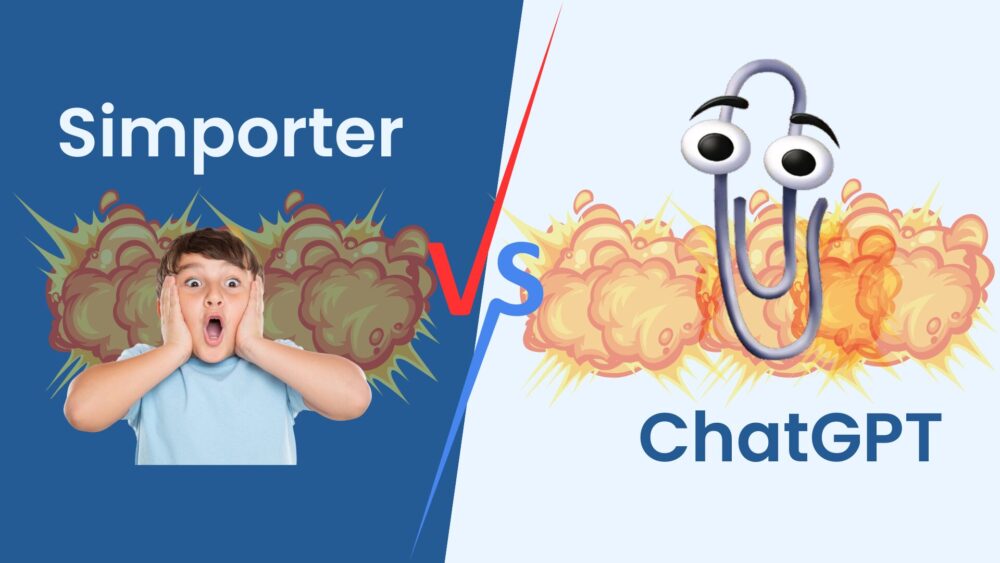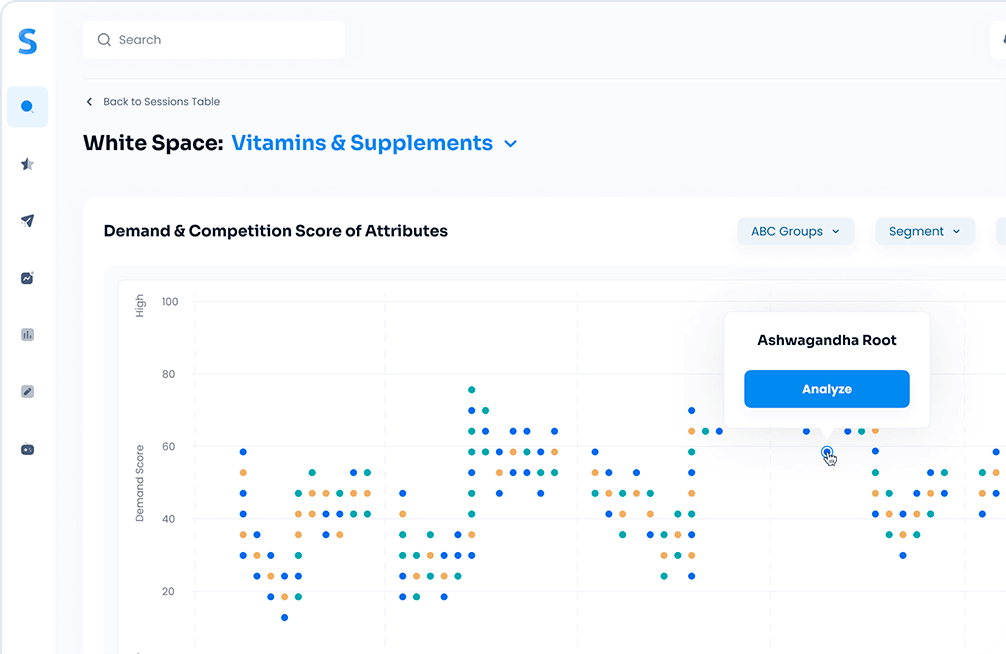If you’re leading a business and want a better way to develop products, artificial intelligence (AI) can be a game-changer. Whether you’re in consumer packaged goods (CPG) or any other sector, AI can speed up the process of creating new products, improve the quality of your ideas, and lower development costs. The days of relying solely on human intuition or outdated methods are over. Now, AI can help you generate product concepts, test them, and refine them — all with data-driven precision.
In this article, we’ll break down how AI fits into product development, why it matters for businesses of all sizes, and how tools like Simporter can help you get ahead. We’ll also dive into real-world examples of AI product concepts that are already transforming industries.
- What Are AI Product Concepts?
- Why AI Matters in Product Development
- Real-World Examples of AI Product Concepts in Action
- How to Get Started with AI Product Concepts
- The Future of AI Product Concepts: What’s Next?
- AI Tools That Power the Future of Product Development
- How to Implement AI in Your Product Development Process
- Conclusion
What Are AI Product Concepts?
AI product concepts are ideas for new products created with the help of artificial intelligence. Instead of going through a lengthy brainstorming process or waiting for human feedback, AI can analyze market data, consumer preferences, and trends to generate product ideas in seconds. AI tools don’t just help with the ideation phase, either—they assist at every stage of product development, from designing packaging to testing concepts in real time.
Simporter, for instance, goes beyond just trendspotting. It spots emerging product attributes, combines the best ones into viable concepts, and even designs concept pack images using AI models like DALLE and MidJourney. This allows companies to create product concepts that not only fit market trends but also come with AI-generated images and descriptions that are ready for consumer testing.
By using AI to help with tasks that would otherwise take weeks, businesses can cut down on the time and costs involved in developing new products. AI tools like Simporter can also generate concept descriptions based on best practices, making it easier to create clear and appealing product presentations from the get-go.
Why AI Matters in Product Development
AI is more than just a buzzword—it’s changing the way businesses create and launch products. Here are a few reasons why using AI in product development is a smart move:
- Faster Innovation
AI tools like Simporter can speed up the ideation phase by spotting trends and product attributes that align with what customers want. Instead of spending months on market research, Simporter helps you combine the best trends into viable product concepts in minutes. This makes it easier for brands to stay ahead of their competitors and be first to market with new ideas. - Data-Driven Decisions
With AI, you can make decisions based on hard data, not just gut feelings. AI tools like Simporter analyze huge amounts of consumer data, market trends, and competitor products to suggest product features and designs that are likely to succeed. For example, if you’re launching a new snack flavor, Simporter can tell you which flavor profiles are gaining popularity and help you design a concept that fits current trends. - Improved Product Testing
Once you have a product concept, you need to test it. AI helps you do this faster and more effectively. With Simporter, you can instantly score a product concept using its AI scoring system, which evaluates how well the concept will likely perform in the market. If the score isn’t where you want it to be, Simporter lets you swap in or out different trends or attributes to improve the score, giving you real-time feedback on how to make the product better before it even hits the shelves. - Automated Design and Packaging
One of the more exciting uses of AI in product development is its ability to generate product designs and packaging. Simporter, for example, uses AI image generation models like DALLE to design product pack images that align with current trends. This cuts down on design time and allows brands to create packaging that speaks to their target audience more effectively. Plus, with AI-generated images, you can see multiple design options in minutes instead of waiting days for mock-ups. - Cost Savings
AI reduces the time and labor involved in product development, leading to significant cost savings. By automating trend analysis, concept creation, and testing, AI tools like Simporter let your team focus on refining the best ideas rather than spending weeks generating and evaluating concepts manually. This helps you launch new products faster while keeping costs under control.
Real-World Examples of AI Product Concepts in Action
AI is already making a big impact across industries. Here are some real-world examples of how AI product concepts are helping companies innovate:
- AI in CPG Trendspotting
CPG companies are constantly looking for the next big trend, and AI makes this easier. Tools like Simporter analyze social media, sales data, and consumer reviews to identify emerging product attributes. For instance, Simporter might spot a rise in demand for plant-based ingredients or spicy flavors, allowing a snack company to quickly develop a new product that hits those trends. By spotting trends early, brands can capitalize on consumer demand before their competitors catch on. - AI in Fashion
The fashion industry is also using AI to create new product concepts. AI tools help designers analyze fashion trends and predict what styles will be popular in upcoming seasons. Brands can then use AI to create digital prototypes of clothing, test them on virtual models, and refine the designs based on AI feedback. This helps fashion brands cut down on the time it takes to bring new designs to market and reduces waste by eliminating the need for multiple physical prototypes. - AI-Driven Product Testing of Consumer Goods
AI also helps businesses test their product concepts before launch. Simporter, for example, allows brands to run quantitative tests on their product concepts. Once you have a concept designed and scored by Simporter’s AI, you can take it a step further by testing the concept with real consumers. Simporter helps you understand how well your product will perform before you invest in full-scale production. - AI for Packaging Design in CPG
Packaging plays a huge role in a product’s success, and AI can help businesses get it right. Simporter uses AI models like MidJourney to generate different packaging designs based on the latest consumer trends. Whether you’re looking for eco-friendly materials or something that will stand out on the shelf, AI can suggest packaging that fits your brand’s goals while appealing to your target market. This helps brands reduce design time and get products onto shelves faster.
How to Get Started with AI Product Concepts
If you’re ready to incorporate AI into your product development process, the first step is choosing the right tool. Simporter is a great option for companies looking to spot trends, generate product concepts, and test them quickly. The platform is easy to use and can help you streamline the entire product development process, from ideation to testing and packaging design.
Here’s how to get started with AI product concepts using Simporter:
- Identify Key Trends: Use Simporter’s trendspotting features to analyze market data and find the most relevant product attributes.
- Create Product Concepts: Combine these attributes into product concepts using Simporter’s AI-driven tools. The platform will generate both images and descriptions for your new product.
- Score and Improve Concepts: Once your concept is ready, use Simporter’s AI scoring system to see how well it’s likely to perform. You can swap in or out different attributes to improve your score before moving forward.
- Test with Real Consumers: Simporter lets you test your product concepts with real consumers to get feedback and make adjustments before launching.
The Future of AI Product Concepts: What’s Next?
AI is just getting started when it comes to product development, and the future looks even more promising. As AI tools become more advanced, businesses will be able to create, test, and launch products faster than ever before. Here’s a look at some of the key trends shaping the future of AI product concepts and how companies like yours can stay ahead of the curve.
- Hyper-Personalization at Scale
AI is already helping businesses tailor products to specific customer segments, but the next step is hyper-personalization. With AI, companies will be able to create products that are uniquely tailored to individual consumers. This level of customization goes beyond offering different colors or sizes—it means creating products that perfectly fit each customer’s lifestyle, preferences, and even personal data.
For example, Simporter could help a skincare company develop a custom product line that adjusts its formula based on skin type, climate, and even daily activities. By analyzing consumer data, Simporter could suggest ingredients and packaging that meet the specific needs of each customer. This kind of personalization will lead to higher customer satisfaction and more loyal customers in the long run.
- AI-Driven Concept Testing and Feedback Loops
One of the most exciting developments in AI is its ability to create real-time feedback loops between businesses and consumers. In the future, companies won’t need to wait until after a product is launched to see how it’s performing. AI tools like Simporter can gather consumer feedback as soon as the product concept is generated, allowing businesses to make changes before production even begins.
For instance, Simporter allows companies to test their concepts by swapping in or out different product attributes based on consumer preferences. If one concept isn’t scoring as high as expected, Simporter’s AI will suggest ways to improve it—whether that means changing the flavor, packaging, or even the marketing description. This real-time testing makes it possible to refine products before they ever hit the market, saving time and resources.
- Sustainable Product Development with AI
Sustainability is more important than ever, and AI is playing a major role in helping companies develop eco-friendly products. AI tools can analyze materials, energy use, and environmental impact to suggest greener alternatives. For example, AI could help a packaging company switch to biodegradable materials without sacrificing quality or cost. Simporter can take this a step further by testing these sustainable packaging concepts with consumers to see how they perform in terms of appeal and practicality.
As environmental regulations tighten and consumers become more eco-conscious, AI will be essential in developing products that meet these demands. By using AI to identify sustainable trends and materials, companies can ensure that their products are not only marketable but also environmentally friendly.
AI Tools That Power the Future of Product Development
Now that we’ve explored the trends, let’s dive into the AI tools making all this possible. There are several AI-driven platforms available that can help businesses create and test product concepts, and Simporter stands out as one of the most comprehensive options for CPG companies and beyond.
Here’s a breakdown of how Simporter’s features work and why it’s a must-have tool for any company looking to stay ahead in product innovation:
- Trendspotting and Product Attributes Identification
Simporter uses AI to scan thousands of data points, from social media conversations to product reviews, to identify emerging trends and key product attributes. Whether you’re in the beauty, food, or personal care space, Simporter spots which product features are gaining popularity and combines them into product concepts.
For example, if your company is in the beverage industry, Simporter could identify rising demand for flavors like turmeric or matcha. The AI then suggests these ingredients as part of your next product concept, giving you a head start in capturing emerging consumer preferences.
- AI-Powered Concept Creation and Design
Once Simporter identifies the trends, it moves to the next step: concept creation. The platform uses AI to combine the best trends into fully developed product concepts, complete with packaging designs. Using AI image generation models like DALLE and MidJourney, Simporter creates product images that match the latest design trends, helping brands visualize their new products before any prototypes are made.
What sets Simporter apart is its ability to automatically generate product descriptions based on AI best practices. This means you get both visuals and text that can be used in your marketing materials, cutting down on the time it takes to prepare for a product launch.
- Instant AI Scoring and Concept Improvement
Not every product concept will be perfect on the first try, which is why Simporter’s AI scoring system is so useful. The platform evaluates each concept based on its potential market performance, giving you a clear idea of how well the product will likely do once it’s launched. If the score isn’t as high as you’d like, Simporter allows you to swap in and out different attributes to see how changes might improve the score.
For instance, if you’re developing a new snack line and the concept’s AI score isn’t high enough, you could swap out one ingredient for another trendier option. This helps you fine-tune your product before you’ve invested significant resources in development.
- Quantitative Testing with Consumers
Simporter doesn’t just stop at concept generation and scoring. It also allows companies to test their product concepts with real consumers through quantitative testing. This gives you valuable feedback before you invest in full production, helping you make data-driven decisions about what to launch and what to refine.
For example, if you’re working on a new line of plant-based protein bars, Simporter can help you run consumer tests to see how your target audience reacts to different flavor combinations or packaging designs. This real-world feedback ensures that your final product is more likely to succeed when it hits the market.
How to Implement AI in Your Product Development Process
If you’re ready to start using AI in your product development process, here’s a simple guide to get you started:
- Pick the Right Tool: Start by choosing an AI platform that aligns with your business needs. If you’re in CPG or a similar industry, Simporter is a great option because it covers everything from trendspotting to concept creation and testing.
- Train Your Team: Make sure your team knows how to use the AI tools effectively. This doesn’t mean becoming an expert in AI, but understanding how to interpret the data and recommendations provided by platforms like Simporter.
- Integrate AI with Your Current Workflow: Don’t overhaul your entire product development process at once. Instead, start by integrating AI into specific tasks, like trend analysis or concept testing, and then expand its use as your team becomes more comfortable with the technology.
- Use AI for Continuous Improvement: AI isn’t just for product launches—it’s also valuable for improving existing products. Simporter can help you track how your current products are performing in the market and suggest improvements based on new trends or consumer feedback.
Conclusion
AI product concepts aren’t just the future—they’re here now, and they’re changing the way businesses develop, test, and launch products. Whether you’re a CPG leader or working in another industry, tools like Simporter can give you a competitive edge by helping you spot trends, create winning concepts, and test those ideas with real consumers.
By adopting AI in your product development process, you can reduce costs, speed up innovation, and ensure that your products meet the demands of today’s fast-changing market. As AI continues to evolve, companies that embrace these tools will be the ones leading their industries into the future.
If you haven’t explored how AI can help your business develop better products faster, now’s the time to start. Platforms like Simporter make it easier than ever to harness the power of AI and turn product concepts into market-ready products.
Sign up here for a demo to learn more about Simporter AI product concepts.









